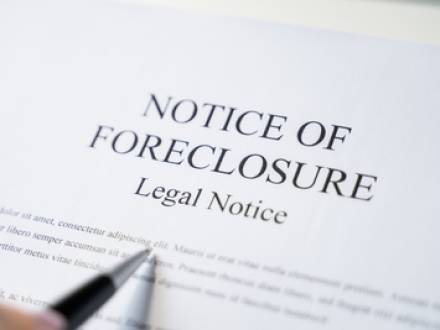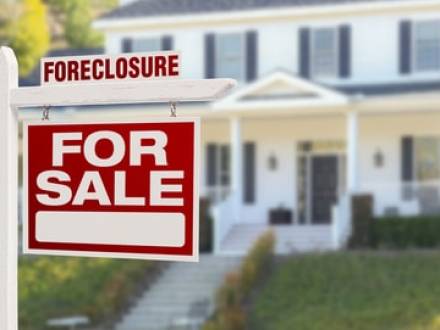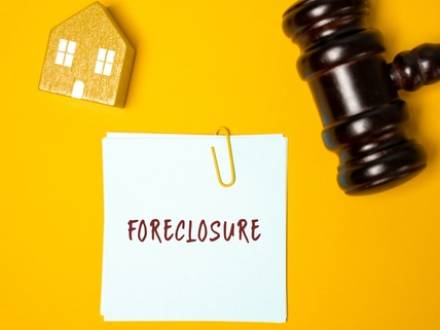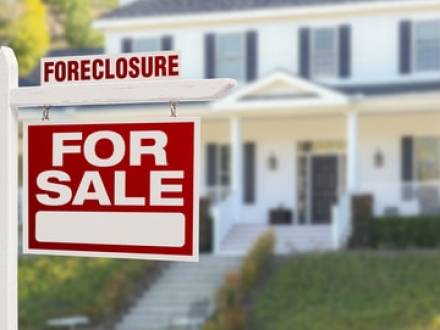1512 Artaius Parkway, Suite 300,
Libertyville, IL 60048
Call for a FREE Phone Consultation
847-549-0000
Video Consultations Also Available
 Spanish
SpanishServing Clients Across 7 Illinois Locations
Recent Blog Posts
When is it Too Late to Back Out of Buying a House?
 The formal home-buying process begins when the buyer makes a written offer to buy a house. If the seller accepts your offer as it is written and also signs it, it becomes a binding legal contract. You might hear your real estate agent or Libertyville, IL real estate lawyer refer to the house as being "under contract" at this time. This is normally the point where it is too late to back out of a sale without repercussions. However, you may still be able to back out of the purchase if you have a valid reason.
The formal home-buying process begins when the buyer makes a written offer to buy a house. If the seller accepts your offer as it is written and also signs it, it becomes a binding legal contract. You might hear your real estate agent or Libertyville, IL real estate lawyer refer to the house as being "under contract" at this time. This is normally the point where it is too late to back out of a sale without repercussions. However, you may still be able to back out of the purchase if you have a valid reason.
When you make an offer on a home, you are not blindly agreeing to buy the home no matter what. A properly written offer should list contingencies that would allow you to abandon the purchase. If one of those contingencies arises, you have grounds to refuse to follow through with buying the home. This makes things much more fair for buyers who have not yet had a chance to conduct a thorough inspection or have an attorney carry out the necessary legal research on the property.
Is Bankruptcy a Valid Way to Stop Foreclosure of Your Home?
 Illinois is one of the top three states with the highest foreclosure rates, with one in 2,837 housing units in foreclosure as of August 2024. Illinois has a high percentage of underwater mortgages left over from the last housing crisis, plus there are lingering fears about recession and the potential loss of jobs under the new administration.
Illinois is one of the top three states with the highest foreclosure rates, with one in 2,837 housing units in foreclosure as of August 2024. Illinois has a high percentage of underwater mortgages left over from the last housing crisis, plus there are lingering fears about recession and the potential loss of jobs under the new administration.
If you are facing home foreclosure, it can be an extremely difficult time in your life. The thought of you and your family potentially being homeless is a frightening thought, especially if you are behind on your mortgage because of the loss of a job or an illness that has generated huge medical expenses.
While there are many different ways to approach a home foreclosure, the best step you can take is to speak to an experienced Grayslake, IL foreclosure attorney. Your attorney can look at your individual situation and help you determine whether filing for bankruptcy is the best option or whether there are better options available.
Why Young Adults Should Make Their Estate Plans
 Estate planning is usually thought of as something older adults do when their health starts to fade. While certainly, people who are becoming elderly should review and update their estate plans, younger adults should establish at least a basic will or trust. No one expects to pass away before they grow old, but life can bring unpredictable surprises.
Estate planning is usually thought of as something older adults do when their health starts to fade. While certainly, people who are becoming elderly should review and update their estate plans, younger adults should establish at least a basic will or trust. No one expects to pass away before they grow old, but life can bring unpredictable surprises.
Few younger adults who pass away unexpectedly have estate plans in place for their families to fall back on. Not having a will or trust to rely on can make an already upsetting time even more difficult for surviving family members. Executing a simple will or trust gives your family or other loved ones instructions to fall back on and can provide them some comfort knowing that your final wishes can be carried out. An experienced Lake County, IL estate planning attorney can help you create the plan you need now.
Foreclosure Defense When Your Home Needs Major Repairs
 Few things are as stressful for a homeowner as knowing your home needs major repairs you cannot make. Some types of essential home repairs can cost upwards of $20,000 - an amount few people can pay out of pocket. If you were already at risk of foreclosure when you found out about the repairs your home would need, fighting to stay in your home might not be the most beneficial option for you. There are ways a Libertyville, IL foreclosure defense attorney can help you during the foreclosure process when keeping your home is not the ultimate goal. You might consider options like short-selling, making a strategic default, or consent foreclosure. These options can help you make a clean financial break from the home without taking on liability for the repairs.
Few things are as stressful for a homeowner as knowing your home needs major repairs you cannot make. Some types of essential home repairs can cost upwards of $20,000 - an amount few people can pay out of pocket. If you were already at risk of foreclosure when you found out about the repairs your home would need, fighting to stay in your home might not be the most beneficial option for you. There are ways a Libertyville, IL foreclosure defense attorney can help you during the foreclosure process when keeping your home is not the ultimate goal. You might consider options like short-selling, making a strategic default, or consent foreclosure. These options can help you make a clean financial break from the home without taking on liability for the repairs.
3 Types of Specialized Trusts You May Need
 Most well-designed estate plans include at least one trust. A revocable living trust is usually used when the purpose is simply to distribute estate assets after the trustor’s death. Some plans include an irrevocable trust for asset protection purposes during the trustor’s life. There are many other types of trusts that serve more specialized purposes. You may want to include a smaller trust with a specialized purpose in your estate plan depending on who you want to leave property to and for what purpose. An experienced Lake County, IL estate planning attorney can help you decide if you need one of these special types of trusts.
Most well-designed estate plans include at least one trust. A revocable living trust is usually used when the purpose is simply to distribute estate assets after the trustor’s death. Some plans include an irrevocable trust for asset protection purposes during the trustor’s life. There are many other types of trusts that serve more specialized purposes. You may want to include a smaller trust with a specialized purpose in your estate plan depending on who you want to leave property to and for what purpose. An experienced Lake County, IL estate planning attorney can help you decide if you need one of these special types of trusts.
Pet Trusts for Protecting Your Furry Companion
A pet trust is designed to provide financial support for your pet for as long as it lives. If you have a cat, dog, or other animal that you want to make sure is well provided for should the pet outlive you, you may consider using a pet trust. First, you would use your testamentary instrument to designate the person who should take your pet. You can then instruct your trustee to distribute funds to your pet's new caretaker to meet the pet's needs. Pet trust funds can be used to pay for your pet’s food, medical care, toys, and other necessities.
What to Know About Buying a Home in the Winter
 If you are thinking about buying a new home for the holidays this year, there are a few things you should know about home sales during the winter months. Spring is normally the busiest season in real estate. Buyers are most likely to be faced with bidding wars in the spring, so you may be able to get a better deal during the winter months when there is less competition. However, there are also some notable disadvantages to buying in the winter. No matter what time of year you are buying a home, you should always be represented by a Libertyville, IL real estate attorney. An attorney can do much more to protect you than a realtor alone can.
If you are thinking about buying a new home for the holidays this year, there are a few things you should know about home sales during the winter months. Spring is normally the busiest season in real estate. Buyers are most likely to be faced with bidding wars in the spring, so you may be able to get a better deal during the winter months when there is less competition. However, there are also some notable disadvantages to buying in the winter. No matter what time of year you are buying a home, you should always be represented by a Libertyville, IL real estate attorney. An attorney can do much more to protect you than a realtor alone can.
The Advantages of Buying a Home in the Winter
The main advantages of buying a home in the winter include:
- Less competition leading to lower prices - Fewer people are trying to buy a home in the winter. You will likely have less competition and more room to negotiate during the winter. Sellers may be motivated to drop the price in order to sell their houses promptly.
What Defenses Can I Bring in an Illinois Foreclosure Case?
 Illinois is a judicial foreclosure state, which means a lender must bring a lawsuit and obtain a court order to foreclose on a home. While this might seem like an overwhelming and daunting prospect, the upside is that the homeowner has his or her day in court. This allows the borrower to present a legal defense and potentially prevent foreclosure. The best way to successfully protect your home is to hire an experienced Illinois foreclosure defense lawyer who will evaluate your case and identify possible defenses against a foreclosure lawsuit.
Illinois is a judicial foreclosure state, which means a lender must bring a lawsuit and obtain a court order to foreclose on a home. While this might seem like an overwhelming and daunting prospect, the upside is that the homeowner has his or her day in court. This allows the borrower to present a legal defense and potentially prevent foreclosure. The best way to successfully protect your home is to hire an experienced Illinois foreclosure defense lawyer who will evaluate your case and identify possible defenses against a foreclosure lawsuit.
What Defenses Can I Bring in a Foreclosure Case?
There are a few arguments homeowners can make that have the potential to ward off foreclosure. For example:
-
Loan servicing errors: If you can show that the lender made significant errors in servicing your loan, it might be a solid defense against foreclosure. For example, the lender might have inaccurately applied payments, refused to accept valid payments, or imposed unreasonable fees.
Why Do I Need a Durable Power of Attorney for Property?
 A durable power of attorney for property is a legal instrument used in estate planning that allows a person (the principal) to authorize someone else (the agent) to make decisions or perform actions related to the principal’s assets and finances. The fact that it is durable means it remains in effect even if the principal becomes incapacitated and can no longer make decisions.
A durable power of attorney for property is a legal instrument used in estate planning that allows a person (the principal) to authorize someone else (the agent) to make decisions or perform actions related to the principal’s assets and finances. The fact that it is durable means it remains in effect even if the principal becomes incapacitated and can no longer make decisions.
Although many people think incapacitation is the purpose of a durable power of attorney for property, it is useful in several other scenarios. Whatever the reason for your durable power of attorney (DPOA), remember to have it drafted by a qualified Illinois estate planning lawyer.
When Is a Durable Power of Attorney for Property Useful?
While decision-making power in the event of incapacitation is one of the purposes of a durable power of attorney, principals find DPOAs useful in many other scenarios. For example:
Illinois Takes Top Spot in Number of Foreclosures in Q3 2024
 While the nationwide foreclosure rates are down for the third quarter of 2024, they are up in Illinois. In fact, Illinois had the highest foreclosure rates for the third quarter of 2024, with one in every 904 homes having a foreclosure filing. Florida, Delaware, Nevada, and Indiana were the other four states among the top five states with the highest foreclosure rates.
While the nationwide foreclosure rates are down for the third quarter of 2024, they are up in Illinois. In fact, Illinois had the highest foreclosure rates for the third quarter of 2024, with one in every 904 homes having a foreclosure filing. Florida, Delaware, Nevada, and Indiana were the other four states among the top five states with the highest foreclosure rates.
Despite these high numbers, Illinois foreclosure rates are significantly lower than they were in 2022, when about one in every 385 housing units received a default notice, had an auction scheduled, or was repossessed by the lender. In 2022, these record-high foreclosure rates were attributed to inflation, rising interest and mortgage rates, and the second-highest property taxes in the nation.
What Are My Rights During the Foreclosure Process in Illinois?
 When a property owner has failed to keep up mortgage payments, the lender may initiate a foreclosure process to reclaim the real estate. This can be an overwhelming and even humiliating experience for a homeowner, who is typically already in financial distress. However, there are laws and regulations concerning foreclosures that give homeowners certain rights during the process. This article will discuss some of those rights, but the best resource for your legal rights in foreclosure is an experienced Illinois real estate attorney.
When a property owner has failed to keep up mortgage payments, the lender may initiate a foreclosure process to reclaim the real estate. This can be an overwhelming and even humiliating experience for a homeowner, who is typically already in financial distress. However, there are laws and regulations concerning foreclosures that give homeowners certain rights during the process. This article will discuss some of those rights, but the best resource for your legal rights in foreclosure is an experienced Illinois real estate attorney.
How Does the Foreclosure Process Work in Illinois?
If you miss a mortgage payment, the lender will likely contact you about the missed payment and you may face late fees. After 90 days, the lender will notify you that your mortgage is in default. After several missed payments, the lender may notify you that the loan is being "accelerated," which means the lender is exercising its right to demand the entire outstanding loan amount by a certain date. If you are still in default after 120 days, the lender may then file a lawsuit to begin foreclosure and serve you with a summons along with a description of your rights and ways to avoid foreclosure.
 Stop Foreclosure
Stop Foreclosure
















